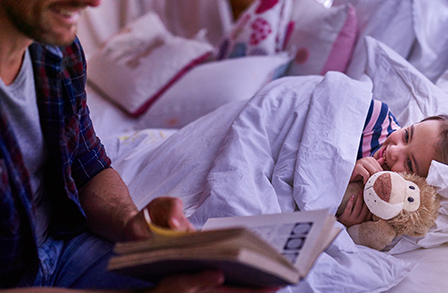Stress Expert and Therapist Karl Rollison
It’s International Stress Awareness Week. I can’t think of a more appropriate time in recent history for this to occur, can you? There are varying levels of travel restrictions, social distancing, social restrictions, job uncertainty and concerns over personal and global finances. This is all happening just in time for a cold, dark, wet winter to assist lockdown by forcing us to sit in front of the TV watching the turmoil of Brexit in the UK and the social unrest of the presidential elections in the USA. We’ll need all the help we can get when it comes to stress and anxiety.
But don’t worry it’s not all doom and gloom, I’ve been helping people all over the world for years and I promise that, if you follow my advice, you won’t just survive – you’ll thrive!
1. Configure your personal firewall. The Firewall in your home and office is basically a filter that restricts negative traffic reaching your computer. We take this very seriously but we should be doing the same with the computer in our heads. I’m talking about the tsunami of negativity from the TV, Radio, newspapers and online. I’m also referring to all the ‘experts’ on social media. Honestly, when was the last time absorbing media information made you feel positive and energised? So try it this week: ignore mainstream and social media. I promise you won’t die. Read a good old fashioned book instead. Your mental health is one of the most precious things you own so take the control of it away from other people!
2. Happy Music. Most people have a list of songs appropriate for the situation – energetic for exercising, soothing for relaxing etc. So why not compile a playlist just for feeling good – those songs that whisk you away to a fantastic memory? It doesn’t matter what, or how embarrassing the songs are, if they make you feel good then who cares?
3. Tryptophan is an amino acid found in foods like milk, egg, cheese, turkey, salmon, nuts and seeds. We use this to produce Serotonin which is a mood stabiliser. Low levels of serotonin are linked to depression and anxiety. The other cool thing about Tryptophan is that, when the lights go out, we use it to produce Melatonin, also known as the ‘sleep hormone’. Get into the habit of snacking on nuts and seeds (unless you are allergic of course) and I promise you will notice a difference in your energy, sleep and overall mood.
4. Magnesium is actually known as “nature’s sedative”. It is a muscle relaxant and great at calming the nervous system. It is also one of the best minerals at reducing stress and anxiety. Natural foods include spinach, broccoli, almonds, Brazil nuts, salmon and tuna but use a good quality supplement as well.
5. Chew gum. The process of chewing actually relaxes us, another reason people comfort eat. The key is to chomp on a good quality, naturally sweetened, sugar-free gum instead of calories. When we were cavemen we were in constant threat from attack by predators, especially when they detected our precious food. For safety we would eat in our groups – we would eat when we felt safe, when we felt safe we relaxed, therefore (from a hardwired neurological perspective) when we chew we are telling our subconscious mind that all is well, this naturally relaxes our Nervous system.
6. Born to run. You probably don’t want to hear this but the endorphins we generate in response to exercise is one of THE best ways to relieve stress. The thing that annoys me is that whenever I mention this fact to someone their usual response mentions the ‘G’ word. Why? Forget the Gym! We are running machines – the best on the planet! We can run further than any animal alive, including horses. Our whole anatomy was developed around running and walking. The great thing is, all you need is a pair of running trainers or comfy shoes. You can run (or walk) at any time, at any distance, as fast or as slow as you want, away from prying eyes and judgment. We can all run – it’s part of our DNA and it’s totally free.
8. Vitamin D. is REALLY important for our mental health. It helps regulate our circadian rhythms (sleep /wake cycle) and low levels are linked directly to stress, depression and anxiety. The problem is we produce it when our skin is exposed to direct sunlight and, if you live in the Northern hemisphere, there isn’t much of that about at the moment. When you add cold and wet and throw in Lockdown and social distancing, we are getting less than normal – this is a REALLY bad situation. We can get it naturally from foods like oily fish, eggs, nuts and milk but I would also suggest a good quality supplement.
The fact is that there IS a lot of negativity about at the moment and there’s nothing you can do about it but you ARE in control of how you allow it to affect you!




